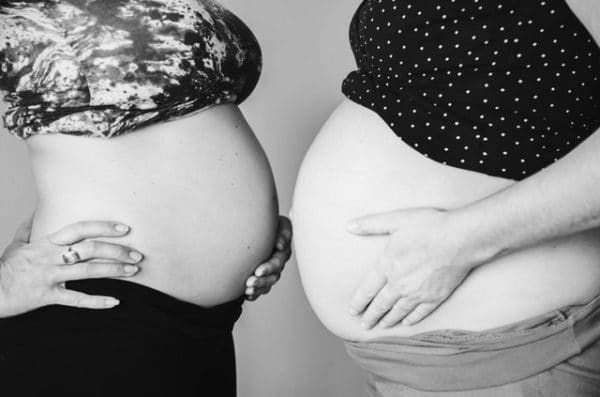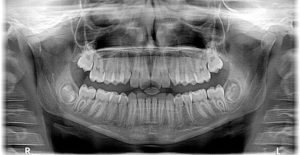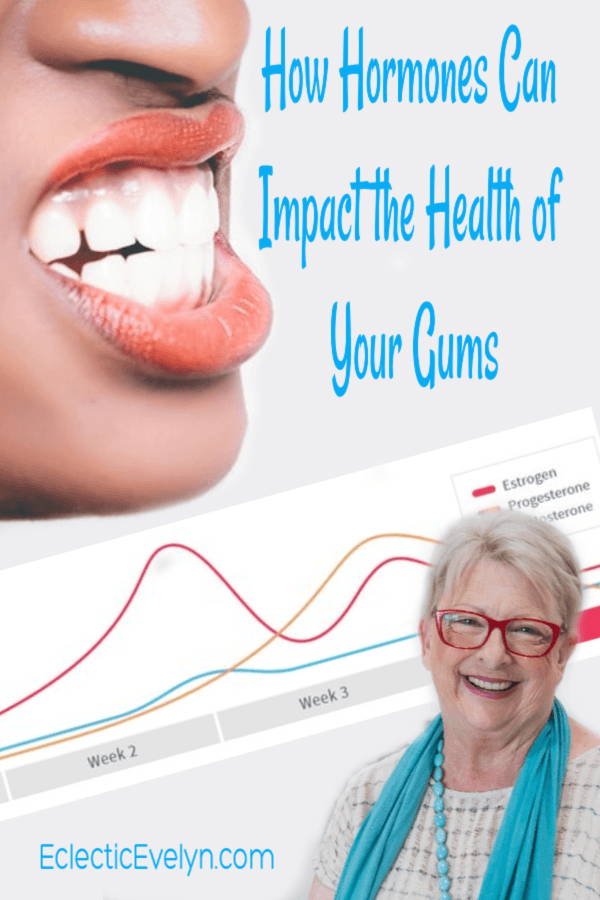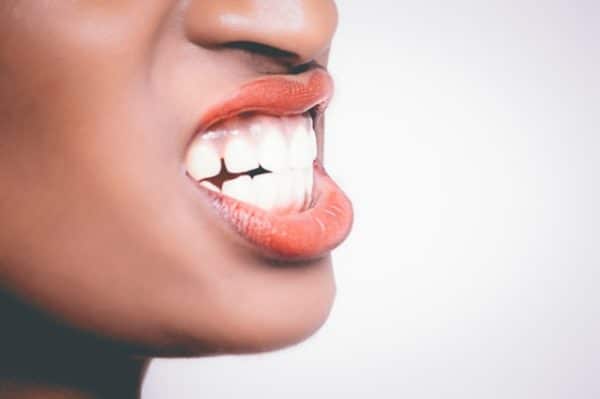Managing the gum disease can be very frustrating.
While not flossing is poor oral hygiene and is the leading cause of gum disease, there are other factors that can cause inflamed gums and bleeding when you brush.
One of the most overlooked of these is the effect of hormonal fluctuations.
Certain hormones that are produced during particular stages of the menstrual cycle, for example, make gums more susceptible to infection and bleeding.
In particular, gums are more prone to bleeding during your period, as well as just before and just after it.
To understand why this is, and how to respond to it, you need to understand exactly how specific hormones affect your gum health.

What hormones affect the health of your gums?
The two hormones that can affect the health of your gums are oestrogen and progesterone.
With regards to the menstrual cycle, oestrogen is at its highest during the middle two weeks of the menstrual cycle.
Progesterone, on the other hand, is at its highest levels in your body during the first and final weeks of your menstrual cycle.
This means that progesterone is released in high levels during your period, as well as a few days before and after it.
Progesterone strengthens your immune system and thus increases your body’s reaction to infection.
Therefore, during your period, as well as immediately before and after it, symptoms of gum disease will increase.
These symptoms, such as swelling, soreness, and bleeding when brushing are not signs of inflammation itself, but rather signs of your body fighting such inflammation.
This is why they will be most apparent when your immune system is being strengthened by progesterone.
Oestrogen, on the other hand, suppresses your immune system, dampening your body’s reaction to infection.
This will, therefore, reduce the noticeable symptoms of gum disease.
You may, therefore, see less bleeding when you brush during this middle phase of your menstrual cycle.

How to respond to these changes to my gum health during the menstrual cycle?
The most important thing to remember is that your hormone levels affect the symptoms of gum disease more than the severity of the disease itself.
Therefore you should not panic too much about your gums bleeding more when you brush over your period.
If you have good flossing habits, then just stick to that and, over time, the excessive bleeding should pass.
On the flip side, your gums are actually at their most vulnerable during the middle stages of the menstrual cycle when oestrogen levels are at their highest.
It’s a bit of a paradox that your gums are at their most vulnerable when symptoms of gum disease seem to have subsided, but this goes back to the fact that these symptoms are signs of your body fighting infection, rather than of the damage caused by infection.
If you need to pay any more attention than normal to the health of your gums it should be at this middle point of the menstrual cycle.
Make sure you floss at least once a day, maybe twice if you have serious concerns over your gum health.
Regular (every 3 months) trips to the hygienist can also ensure that plaque does not remain on your teeth long enough to get under your gum line and cause infection.

Can pregnancy affect my gum health?
During pregnancy, your body produces more oestrogen with the specific aim of suppressing your immune system.
This is to keep your foetus safe from your body sensing it as a foreign organism and attacking it.
It just so happens that the most common inflammatory disease among humans is gum disease.
We would recommend that you increase your trips to the dentist to once every 3 months during pregnancy.
If they see that pregnancy is worsening the condition of your gums they may refer you to a periodontal specialist for further gum cleaning.
Unsurprisingly, it is imperative that you pay super close attention to brushing and flossing during this time.

And what about menopause?
Menopause will see your body producing a lot less oestrogen.
Although oestrogen suppresses your immune system, it also plays a large role in promoting bone density in women.
This is connected to your gum health, as the gravest symptom of long-term gum disease is the degeneration of bone in the jaw.
Such bone loss can lead to your teeth falling out.
Menopause can increase this bone degeneration, therefore a combination of menopause and gum disease can greatly increase your chances of tooth loss.
You, therefore, need to closely monitor the health of your gums during and after menopause.
It would also be good to become aware of the state of the bone that surrounds your teeth as you get older.
You can do this by asking your dentist to take OPG x-rays when you go for your check-up.

Monitoring this once a year will give you a very clear idea of how the bone that holds your teeth in place is faring.
Acting on bone loss early can prevent tooth loss in the future.







Good to know oral health is important!
What an interesting and informative post. Thanks for the great info!
Didn’t know about how hormones can affect the gums, but learned the hard way about how smoking does. After 35 years of smoking and finally quitting in 2009, I am now in treatment for gum disease and it’s no joke! Thanks for sharing at #TrafficJamWeekend